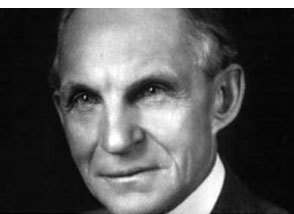
About Humanistic Management
Challenges to the status quo of the Global Economy
Our point of departure is a clear acknowledgement of the tremendous progress that variations of market economies have brought about in many societies. The wealth and prosperity enjoyed in the rich parts of the world today are unprecedented and give us reason to embrace those factors that have led to the emancipation from existential hardship and a substantial increase in personal and collective freedoms in those societies.
Simultaneously, however, the success story of market economies has produced negative side effects that have become to grave to be ignored by simply claiming that the pro's outweigh the con's. This holds true on a global, systemic level as well as when examining business organizations and also people as individuals.
On a global level we are facing exacerbating environmental degradation as well as increasing social and societal problems. Rigorously applied market rationality and short-term profit seeking establishes incentive structures that reward plundering over preserving. We are consuming substantially more natural resources than the earth can replenish which has led us to a situation where we, speaking in financial terms, live of our planetary capital, rather than consuming within the limits of the interest it generates. And no less critical are social problems such as sharply increasing inequity, between as well as within nations. Whereas a small number of nations have reached opulent abundance in their material supply, many more nations are struggling to get by and seemingly remain locked in a vicious circle of poverty. At the same time, even within the richest nations new, fast growing social classes have emerged such as the "working poor" or the "precariat". Belonging in this case means living life at the margins of society, around or below the poverty line whilst working full-time within very wealthy societies.
Consequently, challenges to the status quo do not halt at factory gates as the majority of stakeholders feel left out of the shareholder focused profit maximizing equation that is often definitive for the self-perception of corporations. Widespread mistrust in corporate conduct is leaving many external as well as internal stakeholder groups expecting little societal benefit to come from the corporate citizens that live among them. Employees are disengaged at their workplace, customers insecure about the business conduct they support through their purchases and civil society is frustrated with finding only very limited willingness to accept the primacy of the polity over individual business interests. However, ongoing business success is contingent upon the public license to operate, upon the organization having and maintaining public legitimacy. Organizations which are unable to respond constructively to the need for balancing conflicting stakeholder interests lose legitimacy and, thereby, risk selling out tomorrow's success for today's quarterly result.
Following the global perspective and the challenges to the status quo of business organizations a view on the individual is equally telling for we observe an interesting anomaly. While the current system is credited with creating more wealth for many, the average level of life satisfaction has not necessarily increased. GDP growth and growth in well-being have decoupled in wealthy societies. Factors that contribute to well-being have a relatively low correlation with material wealth once a certain wealth level has been achieved. From a systemic perspective, the quality of a government in terms of democratic and human rights, the level of corruption, the stability of the system, high social capital, a strong economy with low rates of unemployment and inflation all contribute to subjective well-being. To the individual, the quality of social relationships, good physical and mental health, and a generally positive attitude towards life are central drivers of well-being. In contrast, materialism as an attitude is considered toxic. The current system, however, largely sustains itself by serving material needs that lie beyond those that increase well-being and by an endless attempt to generate new needs, which can in turn only be satisfied by the unsustainable use of available resources.
To successfully address these problems we are in dire need to redefine the role and purpose of private sector activities away from the profit maximizing paradigm towards a life-conducive humanistic view of the firm as an organization that derives its raison d'être from serving the common good. In light of the challenges we face it becomes bluntly evident, that a continuation of business as usual is an alternative we no longer have. The Humanistic Management Center has no intention to challenge an understanding of markets as instruments that carry a vast potential to serve humanity in profoundly beneficial ways. What we are challenging, is the way in which we deploy this instrument and the problems we are facing today suggests that a deeper response is required than giving a drop of oil to a squeaking wheel; the response we need is a paradigm shift towards a humanistic economic model. Profit in humanistic management is a means to serve the end of generating societal benefit; it is not an end in itself. Profit to a business is like breathing to humans. We all need to breathe and if we have plenty and good quality air we live longer and healthier. But who would define their purpose in life through inhaling the maximum possible amount of oxygen? Who wants to define their life through hyperventilation?
... back





